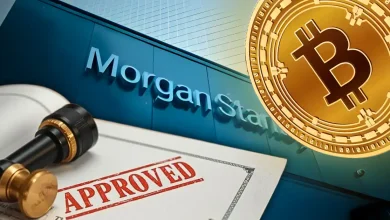
Algeria Imposes Total Crypto Ban – New law criminalizes all crypto activities, with jail time and hefty fines for violations starting July 24.
Regional Divide on Crypto Grows – While neighbors regulate and innovate, Algeria takes a hardline stance, targeting users and miners alike.
Algeria has officially banned all cryptocurrency-related activities, marking one of the harshest crackdowns in the MENA region. A new law that came into effect on July 24 makes it illegal to buy, sell, mine, own, or even promote digital assets like Bitcoin, Ethereum, or Tether.
Even digital wallets and crypto exchanges are now outlawed, signaling a complete rejection of the trillion-dollar crypto industry that many nations are racing to regulate.
What the Algerian New Crypto Law Says
The punishment is strict. Anyone caught dealing in crypto could face up to a year in jail and fines reaching one million dinars, or about $7,700. In more serious situations, especially if tied to organized crime or large financial schemes, the penalties could be even harsher. The law now treats crypto as financial property and brings it under anti-money laundering and anti-terrorism rules.
Why Algeria Is Imposing a Crypto Ban?
The government says the move is meant to protect the financial system from risks linked to illegal activities. They’re especially targeting tech-savvy youth and off-grid miners in southern Algeria who are using cheap electricity to run mining operations. Authorities believe these activities could be used for money laundering or even terrorism financing. But the ban comes as a big blow to Algeria’s growing crypto scene, which was recently one of the fastest-growing markets in the MENA region.
Neighbors Take a Different Route
Unlike Algeria, other North African countries are moving in a different direction. Morocco is starting to build crypto regulations, Tunisia has launched a sandbox program to test digital asset innovations, and Egypt is allowing licensed exchanges to operate under strict rules. Algeria’s decision now puts it at odds with the regional trend of embracing and regulating crypto instead of banning it.
- Also Read :
- Hong Kong Finalizes Stablecoin Rules Effective Aug. 1, Warns Against Hype as Licensing Delayed to 2026
- ,
Who will be impacted?
To back the new law, Algeria is increasing monitoring efforts across the board. The new ban aligns with global anti-crime standards set by the Financial Action Task Force (FATF).
The Bank of Algeria, financial regulators, and security forces are stepping in to enforce the ban, including tracking online activity. This could directly impact users who’ve been trading on platforms like Binance, OKX, and Bybit using VPNs.
A Warning to the Crypto Industry
Algeria’s tough stance is a clear signal. While much of the world is working to regulate and adopt crypto, Algeria is moving in the opposite direction. For businesses and users involved in crypto across North Africa, the risks of operating in Algeria have just sharply increased.
Never Miss a Beat in the Crypto World!
Stay ahead with breaking news, expert analysis, and real-time updates on the latest trends in Bitcoin, altcoins, DeFi, NFTs, and more.
FAQs
The government cited concerns over money laundering, terrorism financing, and illegal mining operations using subsidized electricity, especially in southern Algeria.
Users are advised to cease all crypto-related activities immediately to avoid legal consequences. Businesses involved in digital assets should seek legal advice and stop operations within Algeria.
Crypto mining is now fully banned, and miners face legal penalties. Off-grid mining operations using low-cost electricity are under surveillance and will be shut down.
Technically, some users may try to use VPNs to access platforms like Binance, OKX, or Bybit, but doing so is now illegal and can result in criminal charges under the new law.
Trust with CoinPedia:
CoinPedia has been delivering accurate and timely cryptocurrency and blockchain updates since 2017. All content is created by our expert panel of analysts and journalists, following strict Editorial Guidelines based on E-E-A-T (Experience, Expertise, Authoritativeness, Trustworthiness). Every article is fact-checked against reputable sources to ensure accuracy, transparency, and reliability. Our review policy guarantees unbiased evaluations when recommending exchanges, platforms, or tools. We strive to provide timely updates about everything crypto & blockchain, right from startups to industry majors.
Investment Disclaimer:
All opinions and insights shared represent the author's own views on current market conditions. Please do your own research before making investment decisions. Neither the writer nor the publication assumes responsibility for your financial choices.
Sponsored and Advertisements:
Sponsored content and affiliate links may appear on our site. Advertisements are marked clearly, and our editorial content remains entirely independent from our ad partners.




![Why Is the Crypto Market Going up Today [Live] Updates on March 3, 2026](https://image.coinpedia.org/wp-content/uploads/2026/03/03170220/Why-Is-the-Crypto-Market-Going-up-Today-Live-Updates-on-March-3-2026-2-390x220.webp)



